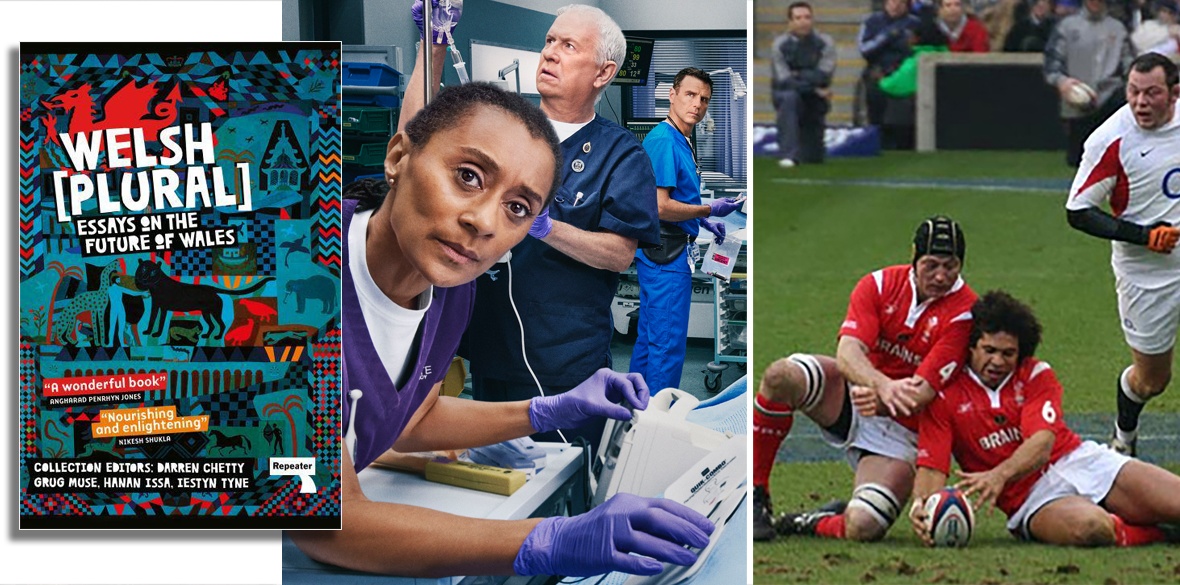This is the last article you can read this month
You can read more article this month
You can read more articles this month
Sorry your limit is up for this month
Reset on:
Please help support the Morning Star by subscribing here
Welsh [Plural]: Essays on the Future of Wales
Edited by Darren Chetty, Hanan Issa, Grug Muse and Iestyn Tyne
Repeater Books £12.99
IN 1987 as a young reporter on the Western Mail – the self-proclaimed “national” newspaper of Wales – I was tasked with travelling the length of the A470 trunk road joining Cardiff in the south to Llandudno in the north.
It’s an iconic route to the Welsh, arising from the Mail’s own campaign in the 1970s for a single road connecting the country.
I suspect the news editor at the time had other motives – this man could not stand the upstart Cockney in his newsroom, a non-indigenous insult to Welsh journalism, and wanted me out of the office.
Yet it was a formative experience: while the road — then still little more than a lane in places — had huge symbolic value, it had no practical utility. Motorists had long been in the habit of leaving Wales in the south, travelling through England, then back into the north.
In short, the A470 typified the gulf that existed in Wales between national aspiration and reality, as well as the prejudice of my news editor — it turns out that my coal-mining grandfather from Wrexham made me more “Welsh” by one definition than he was.
Understandings of Welshness — from the disjointed, prejudicial and backward to progressive alternatives — are explored in myriad forms in Welsh [Plural], a fascinating and timely collection of essays on identity.
The contributions examine “traditional” Welsh authenticity in cultural and historical terms — from folk music, farming and sport to linguistic continuity — and how these have clashed with the country’s hybrid faces past and present.
From an historical perspective, writers such as Martin Johnes, Mike Parker, Grug Muse and Niall Griffiths point to the dangers of exceptionalism and nostalgia, how neoliberal forces destroyed vernacular Welshness, and the growing mood for independence.
Huge policy challenges exist in creating an inclusive society, argues Charlotte Williams.
In an excellent analysis of nation-building narratives, Dan Evans notes that Wales’s permanent identity crisis resides in statelessness, yet devolution has been unable to shape a civic Welshness to embrace diversity.
Contributors with a mixed ethnic heritage such as Darren Chetty, Kandace Siobhan Walker, Durre Shahwar, Shaheen Sutton, Marvin Thompson, Hanan Issa and Rabab Ghazoul provide thoughtful and informative insights into the position assigned to blackness and immigrants, and hence what “qualifies” a person to be Welsh.
Yet divisions affecting even those with a more recognisable attachment to the “traditional” are also laid bare by Cerys Hafana, Morgan Owen and Andy Welch.
The conclusion is that Welsh identity remains a work in progress—the natural condition of all nations.
Sitting in the London Welsh Centre recalling his English father, Joe Dunthorne makes a candid observation: “And in their imperfect Welshness, I sense that I am among my people. These are the Welsh-ish. The Welsh enough. The wish-we-were-Welsher. I am home.”












